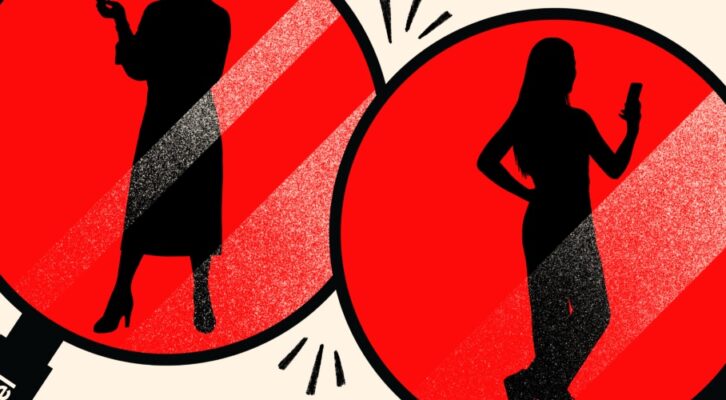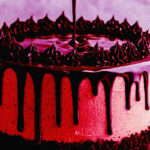Why Fiction Needs More Women Scientists
When A Plot is Handed to You on a Petri Dish, Write It
I love writing fiction that has science in it (which is nothing like science fiction). I spent four years in college studying to be a physicist. Science is how I see the world. But I don’t think that makes me less of an artist than if I had spent those same four years studying the humanities.
If anything, scientists have fewer defenses against beauty and awe than most people. They can’t attribute miracles to God. They have to open their minds to every detail: not just frog, but an enzyme that senses winter’s approach and stops breaking down glycogen so the frog fills with its own natural antifreeze, enabling it to settle at the bottom of a pond and remain frozen all winter, then thaw itself out and get on with procreation when spring returns. Saying that understanding the science behind a natural phenomenon might spoil the beauty of that experience is like saying majoring in English might spoil your appreciation of a poem.
Most of my friends assume I gave up physics because I realized writing would be more fun. The truth is, I left physics because the obstacles facing women wore me down. I decided to pursue my other passion, writing. But the more novels and short stories I read, the more I realized that writers usually write about other writers, or artists, or the occasional lawyer, teacher, or businessperson. Scientists—especially female scientists—rarely get portrayed in fiction. And yet, scientists lead fascinating lives. Their quests to bring to light new physical laws, or new answers to humanity’s major quandaries, can provide a natural narrative spine for a work of fiction.
Take the events that inspired my novel A Perfect Life. Back in the 1980s, my then-husband was a doctoral student in a lab at MIT that was searching for the genetic marker for Huntington’s chorea. Through him, I met a biologist named Nancy Wexler whose mother had died of Huntington’s, which meant Nancy herself ran a 50-50 risk of inheriting the disease.
Wow, I thought. What a terrifying position to be in. To collect enough DNA for the geneticists on her team to analyze, Nancy needed to spend months living among families whose members were afflicted with the same horrifying neurological disorder that killed her mother and might end up killing her. The chances of success were absurdly small. But if she and her team did discover the marker for the disease, Nancy could take the test and discover she didn’t have the gene, which meant she could marry and have children without worrying she might pass the disease on to them. But what if she did have the gene? Given there wasn’t then (and isn’t now) any treatment or cure for Huntington’s, why would she want to know?
I couldn’t pass up writing a book whose plot had been handed me on a platter—or, more accurately, a Petri dish. And yet, writing about scientists doing science presents some particularly daunting challenges. Easy to say your character is a physicist or a biologist. But to focus your narrative along that character’s research requires you understand how the research works. Explaining the science to your readers, you have to be careful not to drop the lead weight of flat, technical, essayistic prose on the delicate origami of your novel’s poetry.
The answer, I think, lies in focusing on whatever thematic questions about your character seem timeless or universal. Should planning a life become a matter of calculating percentages? How might any of us face the terrors to which our bodies make us prone? When we consider what we have inherited from our parents, should we embrace even those traits we dislike or fear? Is it possible—or desirable—to cure ourselves of becoming who we are destined to be?
To avoid dragging in dry, extraneous explanations, you need to inhabit your character’s world so completely you can write about her research from the inside. With all the physics I had studied, I hadn’t taken a single biology class since high school. To catch up, I read the textbooks on my husband’s shelf, as well as a wonderfully revealing memoir written by Nancy Wexler’s sister, Alice. I spent a few weeks working in my husband’s lab so I could describe what it felt like to purify DNA or pipette fetal calf serum onto an agar gel. And I hung out with his lab mates so I could bring to life a set of characters who don’t usually get written about except as caricatures.
Such measures might be beyond writers who don’t have at least a fundamental background in the sciences or aren’t married to a geneticist. But writers tend to be gifted with precisely the trait that allows them to imagine lives unlike their own. I’ve never understood why writers who feel confident enough to create characters whose gender, religion, or race is different from their own quale before the prospect of creating a character who studies science. Scientists might see the world through a different lens than most laypeople, but they are basically human beings; if a scientist works on an experiment for a month, then drops the apparatus, he or she probably will react in much the same way as a writer imagines he or she would react to such an accident. As far back as 1988, my former colleague Charles Baxter, who, I can assure you, is far from being a whiz in anything scientific, created a believable female astrophysicist in his highly regarded novel First Light.
Writers have plenty of tricks for conveying technical information without ruining the pacing of a narrative. Think of the filmic strategies the director of The Big Short uses to explain the financial details of the mortgage fiasco without losing the attention of non-tycoons like me. In A Perfect Life, I came up with the idea of structuring my book as the protagonist’s inner monologue as she rehearses the story she will tell her daughter to explain why the girl’s parents, both of whom knew they were at risk for a devastating disease, decided to get married and give birth to her. By imagining such an audience, I hoped, the science could be understood by any reasonably intelligent reader. Every detail, rather than being experienced as a lifeless fact, might be motivated by a pressing emotional need and colored by a mother’s sorrow.
What I hadn’t anticipated—this was the late 1990s—was that some writers face more obstacles than others when publishing a novel that has science in it. “Male readers won’t read novels written by women,” one editor explained. “And women’s book groups won’t read anything that has science in it.”
But what about Andrea Barrett? I asked. Or Rebecca Goldstein? The editors seemed to regard those authors’ successes as anomalies. My protagonist, they said, was cold. They couldn’t put their finger on why. Maybe, one editor suggested, it was because she reacted to the disease that ran in her family by trying to figure out what caused it rather than engaging in more typical female behaviors such as caring for the afflicted parent (my protagonist does give up a year of her studies to care for her dying mother, but that isn’t the emphasis of the book). The prophesy that women wouldn’t want to read a novel that had science in it seemed to be self-fulfilling, if for no other reason than most editors wouldn’t publish such a book.
Discouraged, I put my novel in a drawer and wrote a memoir about my childhood passion to become a physicist and why, even today, so few women go on to careers in the hard sciences. That book was a struggle to get published, too. But one editor took a chance, and, as it turns out, a great many women (and men) do want to read books about women scientists.
I didn’t write A Perfect Life to make the point that women can be biologists. I am suspicious of any fiction that is written specifically to achieve some larger societal good; like a turkey bred to have unnaturally large breasts, such a novel might no longer be able to fly, or even to stand without toppling over. But the more female scientists we see going about their business of being scientists, especially if they are drawn as recognizably human (unlike, say, Amy on The Big Bang Theory), the more likely we will be to imagine women as being scientists. (Not surprisingly, even a young child, when asked to draw a scientist, usually will draw a man.)
If female characters are restricted to the roles of artist, dancer, waitress, or barista, their potential to generate fiction that explores existentially rich and original worlds also seems restricted. One of my students is working on a novel about a female geologist who is struggling to survive in the fracking fields of North Dakota, and I can’t tell you how much pleasure I have derived in getting physically and morally filthy with that character.
Of course, writing fiction about a scientist, whether female or male, isn’t something that every writer ought to do. I have listened to enough of my writer friends describe the terror that overcomes them when they encounter so much as a single equation to know that poor teaching leaves vast segments of our population blind to the beauties, or even the uses, of science and math. What surprises me is that these same friends don’t view their ignorance as a loss, even as they despair at hearing their undergraduate science majors confess that writing, for them, is a panic-inducing ordeal, a matter of avoiding grammatical errors, searching out hidden or coded symbols in works of literature written by people who lead lives nothing like their own, lying and telling the teacher what he or she wants to hear.
Fortunately, even writers who flunked high school algebra can, if they subdue their panic, pick up a book written for a lay audience and learn about climate change, dark matter, or the likelihood of a computer developing anything we might call a consciousness. They can hang out with a neighbor who works for a high-tech firm designing software for self-driving cars, watch an episode of NOVA, spend an hour with the Science Times. At the very least, a young writer can take a few courses in psychology, astronomy, or biology before going on for an MFA.
After all, without science, how can we understand how language evolved in the first place? How can we think about the vastness of space and time? With so many actual human beings agonizing about whether they should get their kids vaccinated, eat foods that have been genetically modified, attempt to avoid cancer by having both their breasts hacked off, shouldn’t our fictional characters be discussing such questions, too?
Many writers seem to find perverse pleasure in contemplating life in a post-apocalyptic age in which we will be forcibly cured of our addiction to the Internet, Wifi, smartphones, porn. But science isn’t likely to destroy the world; it’s only likely to change it radically. And we can’t leave to scientists alone—especially straight white male scientists—the task of designing, or even contemplating, the world in which we and our grandchildren end up living. If human beings learn to postpone death, if we end up living hundreds, perhaps thousands, of years, shouldn’t our characters be wondering how their marriages and jobs might be affected such advances?
Years ago, when I was trying to decide between physics and writing, my professor, John Hersey, told me to read C.P. Snow’s famous lecture “The Two Cultures,” in which the British chemist and novelist derides scientists and humanities scholars for being illiterate in each other’s fields. I had no intention of growing up to be the sort of jowly curmudgeon who scolds people for not spending their lives studying whatever they most enjoy studying. But Snow’s warning seems even more important today than when he delivered it in the 1950s.
Paradoxically, that’s because there no longer are two cultures. Even if we don’t understand how the gadgets we are using work, how the magical waves vibrating through the air carry the data in which we all are suddenly drowning, we constantly are immersed in science. And as those same gadgets promise—or threaten—to become part of our very bodies, we need scientists who recognize the reality of this illusion we still call the soul, and artists who know how intimately the reality of that soul will remain connected to the physical world—to science.




















